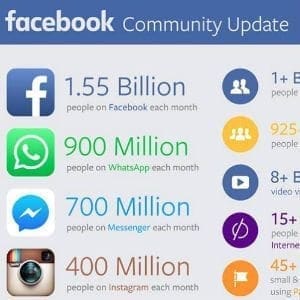 When a hotelier delivers their message on social media and in their content, the main goal is to get a reaction from the audience. That reaction can be a follower on social media, a ‘like’ or share of a blog, a visit** to the hotel site, and ultimately, the direct booking of a room from their site.
When a hotelier delivers their message on social media and in their content, the main goal is to get a reaction from the audience. That reaction can be a follower on social media, a ‘like’ or share of a blog, a visit** to the hotel site, and ultimately, the direct booking of a room from their site.
Most hotel brands believe that as long as they constantly post content and interact with their followers that they will generate the responses they seek. But there is another key to creating effective content: the brand’s voice. The voice of the content is the way that your hotel expresses their message on social media and in marketing content. In other words, it’s your brand’s attitude and personality that permeates through the content. When you discover your brand’s voice and use it properly, travelers and followers should be able to easily recognize your hotel as the creator of the content. Voice can directly alter the effect that your content has on your audience. But first, you must learn how to develop your brand’s voice.
Figuring out what voice to use in your content starts with getting to know your brand. What kind of image do you want your hotel to portray? What target audience do you aim for? Answering these questions will help you decide what brand voice to use. If your hotel attracts a lot of millennials, then a laid-back, casual, or humorous voice may be something to use. If business travelers are attracted to your property, then maybe your voice should be more professional, formal, and informative.
Using the right audience-targeted voice will help you speak directly to your traveller segment and your message will be more likely to resonate with them. It’s also important to consider things like the use of slang, punctuation, emoticons, and humor to deliver a message if it fits your brand’s voice. All of these things will set up an images of your hotel’s brand in the mind of the consumer and will help your audience know what your hotel is all about. If they can relate to your voice and message they are more likely to show interest in your hotel.
Pitfalls to avoid
There are common voice mistakes that many brands make that you should avoid if you want your hotel to be successful. The biggest mistake is that a brand’s content lacks any voice at all. When your content lacks a voice, your hotel brand can come off as boring, robotic, and inhuman.
Your brand can also have too many voices. Some marketing professionals think that having multiple voices can attract a larger audience, but in reality it causes your brand to lack a sense of identity. A brand with too many voices is like having multiple personalities.
Also, some brands tend to copy the voice of other brands which causes them to look inauthentic and can ruin the trust between the brand and the consumer. Using too much jargon in your content can also be off-putting to those who may not be familiar with specific hotel colloquialisms.
One of the most preventable mistakes is the presence of spelling and grammar errors in the content. An abundance of errors can make your brand appear uneducated and unprofessional. For the best results, it’s a great idea to have someone ensure that the voice in your messages is consistent and that all content is free of errors.
Finding a voice depends on how well you know your hotel brand. It may seem simple to figure out, but it’ll will take a lot of research and self examination to figure out. Understanding the culture, community, and personality of your brand are the first steps to figuring out the voice you want to use. Also examine the psychology of your audience and learn the things that appeal to them. Once you have our voice figured out, you can apply it to your content and social media posts and hopefully resonate more with your target audience.
About the author



















